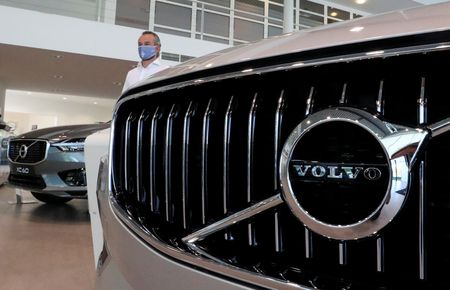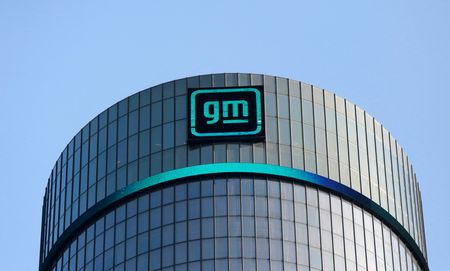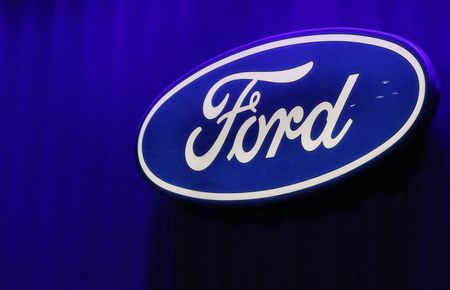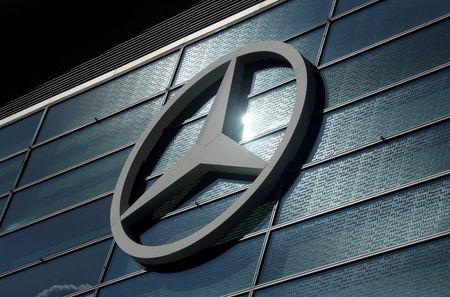 1
1 1
1




By Ben Klayman
(Reuters) -Global auto and truck makers, including Sweden’s Volvo Cars and Germany’s Daimler Truck, on Monday suspended some business in Russia following that country’s invasion of Ukraine.
Russian forces invaded Ukraine last week, marking the biggest attack by one state against another in Europe since World War Two. Many firms have idled operations in Russia following Western sanctions against Russia.
Energy giant BP Plc, Russia’s biggest foreign investor, abruptly announced over the weekend it was abandoning its 20% stake in state-controlled Rosneft at a cost of up to $25 billion.
On Monday, Swedish automaker Volvo Cars said it would suspend car shipments to the Russian market until further notice, becoming the first international automaker to do so as sanctions over the invasion continue to bite.
In a statement, the company said it had made the decision because of “potential risks associated with trading material with Russia, including the sanctions imposed by the EU and US.”
“Volvo Cars will not deliver any cars to the Russian market until further notice,” it said.
A Volvo spokesman said the carmaker exports vehicles to Russia from plants in Sweden, China and the United States.
Volvo sold around 9,000 cars in Russia in 2021, based on industry data.
Earlier on Monday, RIA news agency reported Volkswagen had temporarily suspended deliveries of cars already in Russia to local dealerships, citing a company statement. VW had no immediate comment when contacted by Reuters.
VW previously said it would halt production for a few days this week at two German factories after a delay in getting parts made in Ukraine.
Daimler Truck said on Monday it would freeze its business activities in Russia with immediate effect, including its cooperation with Russian truck maker Kamaz , which is 47% owned by Russian state conglomerate Rostec.
Mercedes-Benz Group is also looking into legal options to divest its 15% stake in Kamaz as quickly as possible, the Handelsblatt newspaper reported.
A Mercedes spokesperson told Reuters business activities would have to be re-evaluated in light of the current events.
Mercedes-Benz Group, formerly Daimler AG, was the parent company of Daimler Truck before the truck maker was spun off.
U.S. truck engine maker Cummins Inc on Monday declined to discuss its relationship with Kamaz, but said it expected “some impact” to its business in Russia without providing further details. In 2006, Cummins agreed to produce engines for Kamaz’s fleet of trucks, buses and other heavy machinery.
HALTED PRODUCTION
Swedish truck maker AB Volvo said it has halted all production and sales in Russia due to the crisis. It generates about 3% of its sales in Russia and has a factory there.
“We now have a bit more clarity on sanctions and security in the region … this means all operations in Russia end,” a company spokesperson told Reuters, adding the measures would apply until further notice.
Officials with U.S. automakers Ford Motor Co and General Motors Co could not be reached to comment on Monday.
Ford, which has a 50% stake in three Russian plants, previously said it was working to manage any impacts on its operations but its primary focus was the safety of its employees in the region.
GM, which only sells a small amount of vehicles in Russia, previously said has limited supply-chain exposure in the region and was working to ensure the safety of employees.
Last week, several automakers and suppliers, including Renault and tire maker Nokia Tyres, idled production following the invasion. Parts makers Aptiv shifted high-volume work out of Ukraine, and Japan’s Sumitomo Electric Industries suspended operations there.
Separately on Monday, Toyota Motor Corp said it would suspend factory operations in Japan after a supplier of plastic parts and electronic components was hit by a suspected cyberattack.
No information was immediately available about who was behind the possible attack or the motive. The attack comes just after Japan joined Western allies in clamping down on Russia after it invaded Ukraine, although it was not clear if the attack was at all related.
Japanese government officials said they would investigate whether Russia was involved.
Meanwhile, airlines on Monday braced for a potentially lengthy dispute after the European Union banned Russian airlines from its airspace and Moscow responded in kind. Another shipping container line suspended shipments to Russia, and Maersk said it was weighing doing the same.
(Writing by Ben Klayman in Detroit, additional reporting by Jan Schwartz in Hamburg and Bianca Flowers in New YorkEditing by Nick Zieminski)